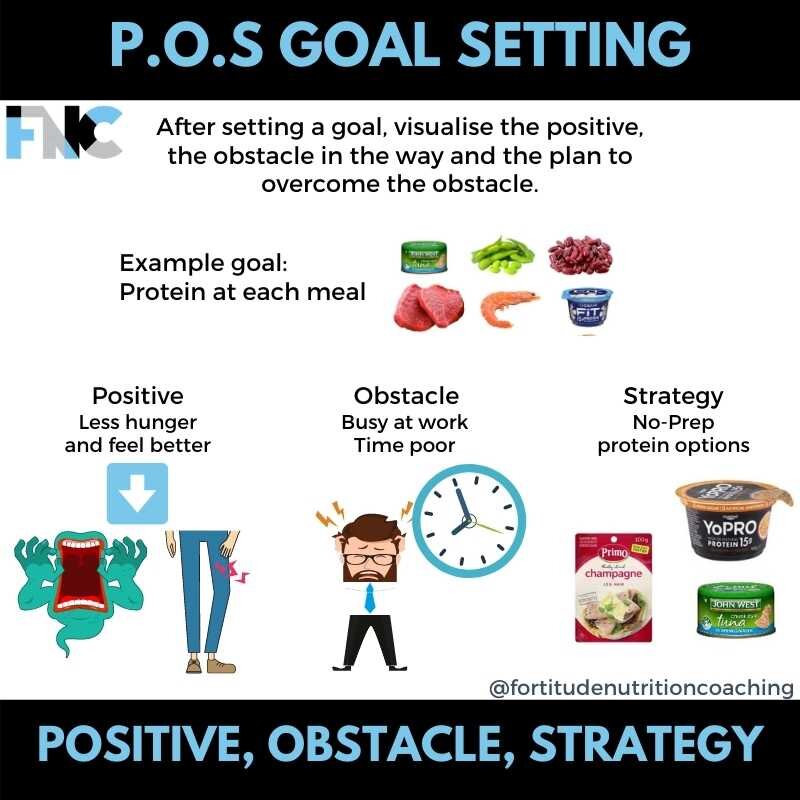7 Strategies for Self Control
Often people believe a lack of self control or willpower is their biggest barrier.. They think they don’t have the willpower or self control to say no to temptation or to stick to a plan.
In this blog we will explore the definition of self control and whether our levels of it are fixed. We will also provide 7 ways that you can save yourself from having to use self control too frequently in an attempt to make your life easier, whilst also providing you with a strategy to practise your self control to build up your confidence.
What is Self Control?
The ability to manage your impulses, emotions, and behaviours to achieve long-term goals. [1] The ability to control yourself, in particular your emotions and desires, especially in difficult situations. [2]
Is Self Control Fixed? You either have it or you don’t?
This is a bit of a myth. Especially when we consider that people can display self control in certain situations but not others. You may have self control with your job, with study, with abstaining from texting whilst driving, even when it comes to consistently exercising. This shows us that we do have self control but maybe we haven’t developed the skill when it comes to nutrition, yet!
Can you improve your self control?
Yes, self control and willpower can be strengthened through deliberate practise. We’d recommend testing your self control with foods or drinks that you are confident with and during times where you feel you’ll be giving yourself the best chance of success.
Eg. You may feel more confident having a small cookie after lunch at work compared to a glass of wine after a stressful day at work.
Do you always have to practise self control?
No. As much as we can strengthen self control and willpower like a muscle, remember muscles get fatigued. We can also treat it like a fuel source that is not infinite. If we rely on self control all the time, we may be setting ourselves up for failure or making life harder than it needs to be. It may not be a matter of “if” you’ll give in to temptation, but “when”.
Why can’t you “Just Say No”?
Why don’t we just say no? In the research, willpower and strategies that prescribe it, tend to be unsuccessful. Eg. the Drug Abuse Resistance Education (DARE) program, which encourages students to “Just Say No” to drugs, has been shown to be ineffective. [2]
What can you do to save yourself from having to practise self control and use willpower all the time?
Here are 7 Self Control Savers:
Try to implement these strategies and make decisions when rested, confident and thinking clearly so that your actions and goals are aligned.
Commitment devices
These tend to make more self-controlled choices when deciding about the future rather than the present. They can improve future happiness by voluntarily eliminating options.
It’s essentially like putting savings into an account you can’t touch.
Examples include:
buying smaller plates/containers
single-serve indulgences
deleting apps off your phone
instead of buying a case of beer/wine, buying 1 bottle, less at a time to control the intake
buying a large drink bottle to make it easier to drink more water
This strategy can help prevent you from over consumption but still satisfy a craving by using predetermined portion control.
2. Control Your Environment:
Removing tempting foods from our environment can act like a “outta sight, outta mind” scenario. Our habits follow a loop of Cue, Routine and Reward. The sight of the foods act as the cue which initiates a craving to eat the food (the routine), finishing with the taste being the reward.
We can break the loop by removing the cue which can prevent us from experiencing the craving to practise the routine of having the tempting food. We can remove the cues or triggers to behaviours/foods that aren’t aligned with our goals.
These trigger foods are also known as red light foods. They are foods that pose a high risk to you over consuming and you struggle with your portions with. In the initial phase of your nutrition journey it could be a good idea to keep red light foods out of the house or your food environment so that you don’t have to practice self control when the craving arises.
*Note: Red light foods don’t have to be red light forever.
3. Triggers and replacement behaviour
Identify triggers or cues that reinforce certain "unwanted" behaviours. Try avoiding situations that contain triggers or reinforcers. Do you tend to give in to temptation when you’re stressed, lonely, emotional, or bored? If you can’t avoid the triggers, can you find replacement behaviours to practise? Can you try to implement alternatives like mindfulness meditation, going for a walk, calling a friend, doing some journaling? Find solutions and alternatives that are more helpful in the long run.
4. Planning.
The when, where, how you're going to practise the behaviour.
Create a plan when you feel confident and have your goals in mind. A plan helps provide you with clarity of what you’re going to do, when you’re going to do it and how you’ll do it. It reduces the risk of making decisions when you’re fatigued, stressed, emotional or hungry which may be red light zones for you. Spend some time before a new week or the night before to write a plan for your meals.
Example:
5. POS: Positive, Obstacle, Strategy.
After setting a goal, visualise and note the following.
Positive outcome: “What would be the best result?”
Obstacle that stands in the way: “What may prevent you from achieving this?”.
Strategy: “What's an effective way to tackle the obstacle?”
Example
6. IF-THEN Strategy
An if-then plan is essentially a Plan B.
This strategy can prevent you from straying off course, by giving you a plan of action on how to stay on track if you do sway slightly from the plan.
The “If-Then” technique forces you to create a strategy for when chaos strikes. It gives you a plan of attack before a barrier arises so you are prepared and can then stick to your schedule.
All you need to do is complete this phrase:
“If [something unexpected], then [your response].”
If I don’t wake up in time to go to the gym before work, then I’ll go after work.
If I forget my lunch at home, then I’ll get a bbq chicken and salad from the shops.
If I have a drink during the week, then I’ll have one less on the weekend.
Planning for chaos and using the “If-Then” technique can help find ways to stay on track even when life is pulling you off course.
7. Turn a “have to” into a “want to”
Instead of telling yourself that you have to eat chicken and veggies or yogurt and berries, try telling yourself that you want to - and believe it. Create meals you enjoy eating that taste good, but not so good you can’t stop eating them. A way we can stick to our habits and goal aligned meals is to make them attractive. We can flavour our foods with herbs, spices and sauces whilst making sure we are building our meals with foods we enjoy. It’s easier to do tasks you want to do, so use that strategy with your nutrition - it’s easier to eat meals you want to eat.
BONUS SELF CONTROL PRACTISE STRATEGY:
Try this activity to help increase your confidence in displaying self-control when it comes to indulgences.
What is your chosen indulgence?
How much will you have? What is your agreed-upon portion? Eg. 2 squares of chocolate, 1 single-serve portion of a Freddo, 1 x 100g scoop of ice cream
When do you plan to have the indulgence? Eg. 8pm, after lunch, etc
Where do you plan to have the indulgence? Eg. In the loungeroom, on the balcony, etc
How confident are you that you will stick to the agreed portion on a scale of 1-5? (1 not confident - 5 extremely confident)
What do you think you could do if you get the urge to have more than your agreed upon portion size? Eg if you want another scoop of ice cream or another row of chocolate can you brush your teeth or have a piece of fruit?
Extra note: Try to have your indulgence mindfully and without distractions. Eat it slowly and really enjoy it. Think about the taste, textures, smells, and the whole experience.
SUMMARY:
Nearly everyone at one time or another has over-eaten, drank a little (or way) too much, spent too much money, procrastinated, or fallen into other self-defeating behaviours. These behaviours reflect a failure of self-control — pursuing an option that is the most tempting right now instead of the option with longer-lasting value. [2]
Selecting one of the above strategies to help reduce your need to practise self control will depend on how easy they are to implement and how suitable they are for the behaviour or the situation you’re in.
If you can take 2 key things away from this blog:
Self control isn’t fixed. You can develop it like a skill and build it like a muscle.
You don’t always have to rely on self control. Try some of the above strategies to conserve your energy and reduce the need to use willpower.
1 on 1 Nutrition Coaching with Fortitude Nutrition Coaching
Are you looking for an understanding and supportive human to talk with, to help with advice and guidance? An objective set of eyes to see what you could improve to move towards your goal in the easiest possible way?
We work with real people and get real results. Sign up for 1 on 1 Nutrition Coaching today and get the support, guidance and accountability of a Fortitude Nutrition Coach.






















Tired of the "eating healthy" cycle that leads nowhere? Our blog unveils the blueprint for success. Say goodbye to vague intentions and hello to a clear Action Plan. Transform your eating habits with precision - from veggies to protein, breakfast to overcoming obstacles. Break free from the loop and embark on a fulfilling journey. Ready to achieve your goals with confidence? 🎯 Learn more: https://www.fortitudenutritioncoaching.com.au/blog/why-healthy-eating-doesnt-work